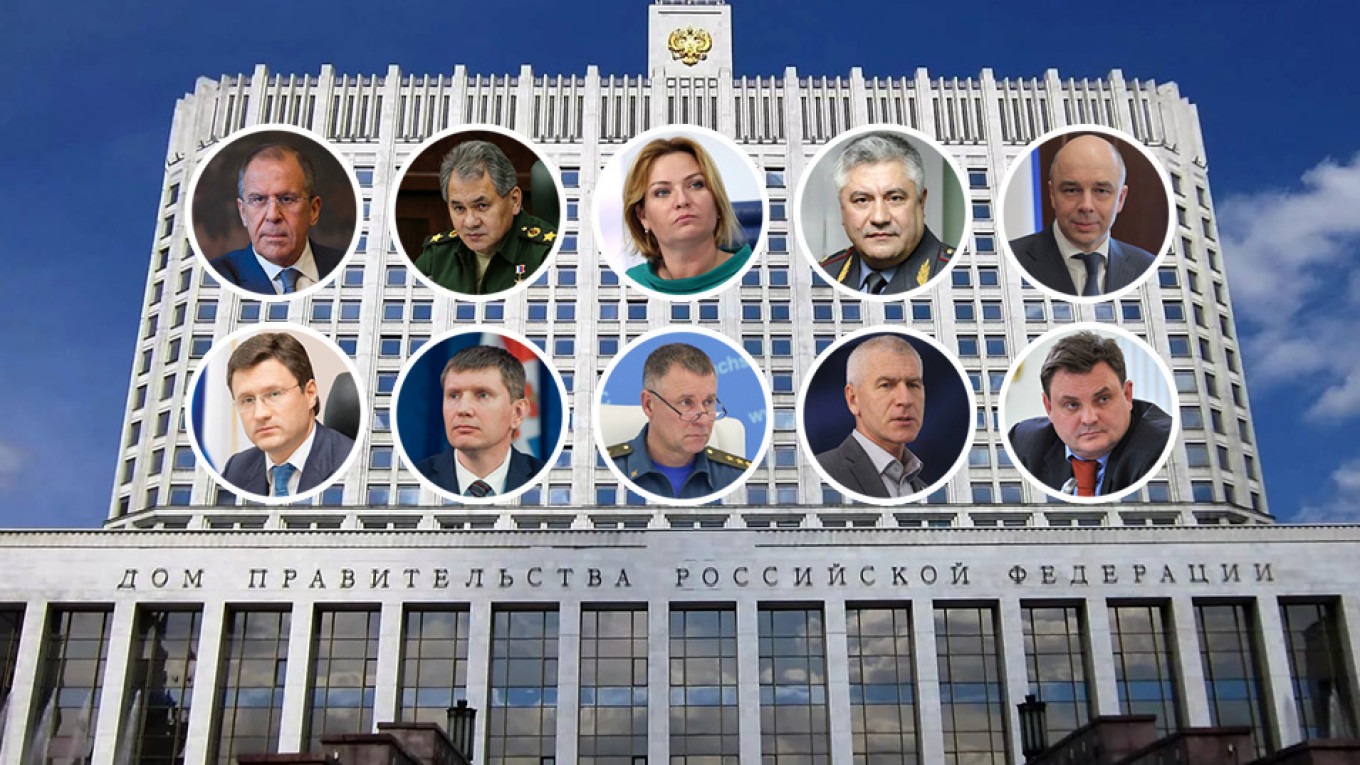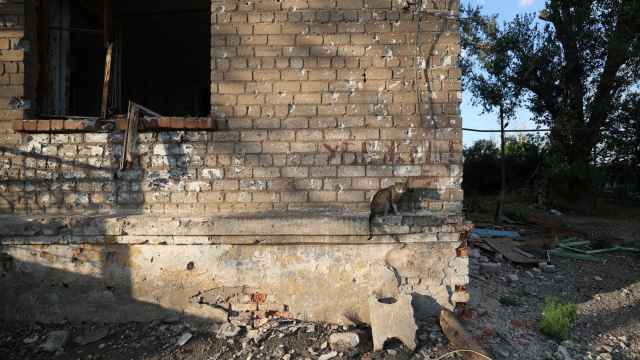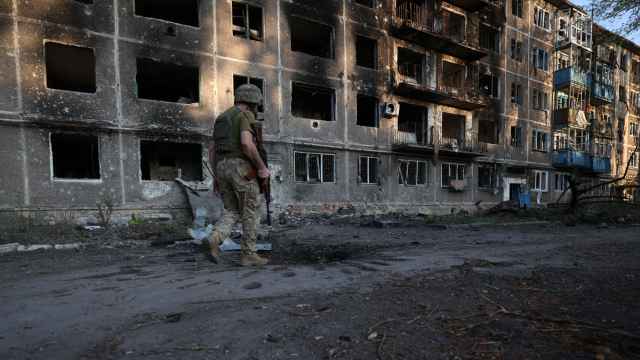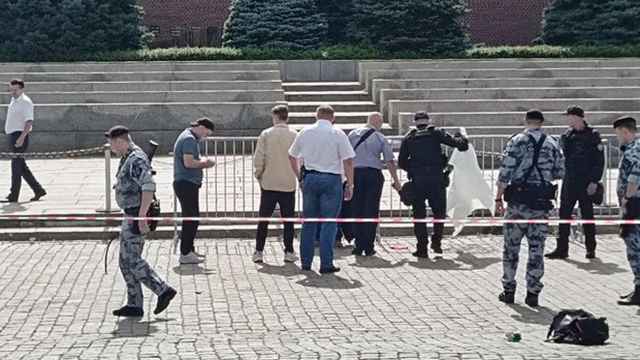President Vladimir Putin confirmed a new government Tuesday following last week’s shake-up of the political system which led to Dmitry Medvedev’s resignation as prime minister.
Despite Putin describing the new government as a break with the past, many senior ministers held on to their positions.
Here’s a look at the main figures in Russia’s new government:
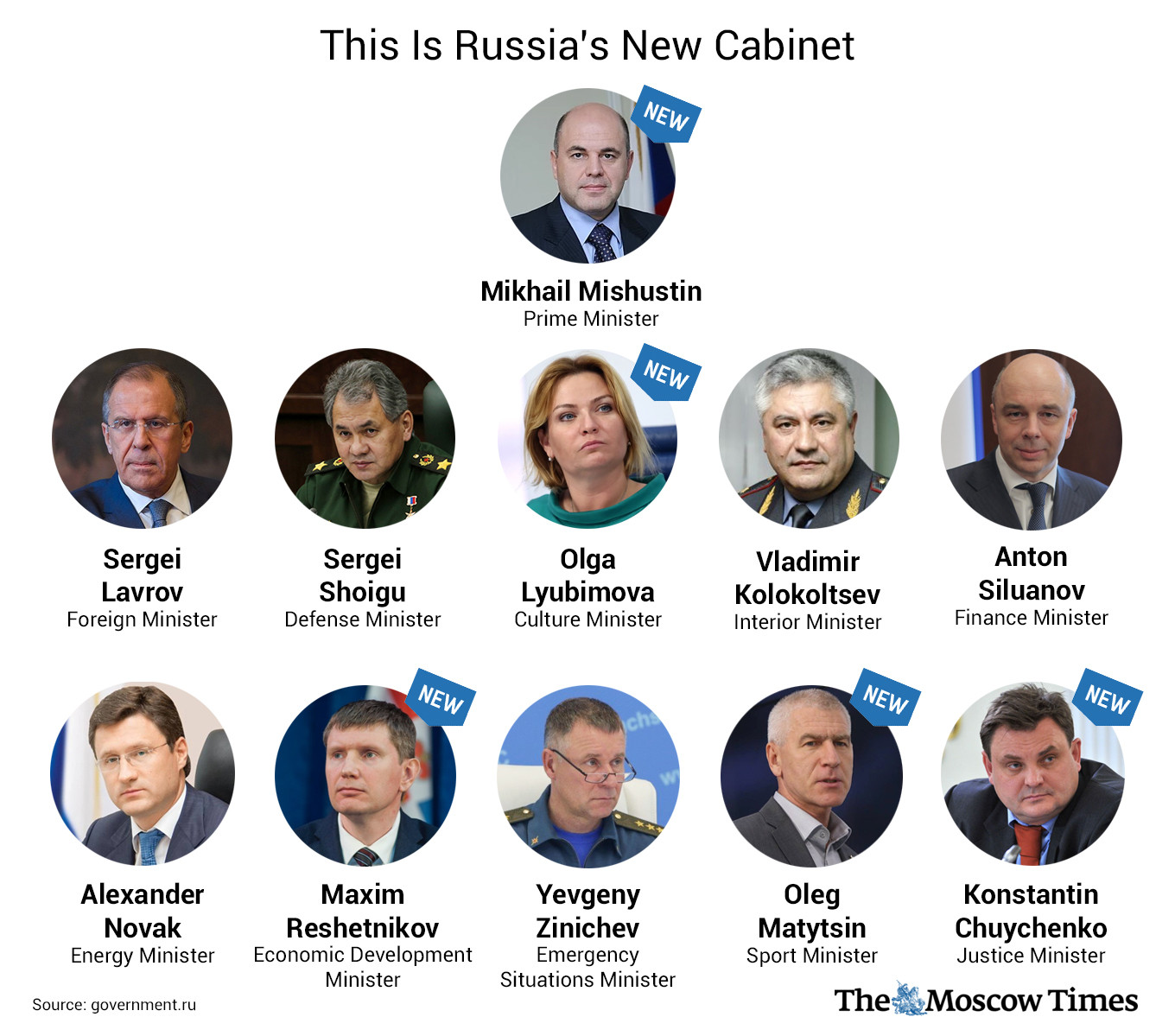
New appointments:
Prime Minister Mikhail Mishustin
A day after Russia’s ex-prime minister Dmitry Medvedev announced his resignation, Putin and the State Duma confirmed Mishustin as the head of Russia’s government.
Before being appointed prime minister, Mishustin had served as the head of the Federal Tax Service since April 2010. He was also a member of the Presidential Council for Financial Market Development in 2011-2018.
Culture Minister Olga Lyubimova
Lyubimova, who was previously the director of the Culture Ministry’s cinematography department, replaces her predecessor Vladimir Medinsky as culture minister.
During her time in that position, the ministry for the first time published information on the amount of state funding it gives to filmmakers. The data revealed that only 30 out of the 340 state-funded films released since 2015 have been commercially successful.
Economic Development Minister Maxim Reshetnikov
Reshetnikov leaves his post as governor of the Perm region, replacing Maxim Oreshkin as the head of the Economic Development Ministry. He has also worked in the government of Moscow Mayor Sergei Sobyanin as the capital’s head of economic policy.
Sports Minister Oleg Matytsin
Matytsin had been the president of the International University Sports Federation since 2015.
In 1996-1999 Matytsin was a dean of the faculty of individual professional education at the Russian State University of Physical Culture, Sports and Tourism and in 2001-2006 he was its rector.
Justice Minister Konstantin Chuychenko
Chuychenko previously served as a deputy prime minister and chief of staff in Russia’s government. He was also Medvedev’s classmate at Leningrad State University.
Returning ministers:
Foreign Minister Sergei Lavrov
Lavrov remains the head of the Foreign Ministry — a position he has held since March 2004. Known as a tough diplomat, Lavrov is one of the longest-serving cabinet members.
Defense Minister Sergei Shoigu
Shoigu has served as defense minister and as chairman of the council of defense ministers of the Commonwealth of Independent States (CIS) since 2012. A close Putin ally, he regularly ranks among the most popular and well-trusted government officials in public polling. At the same time, under his tenure, Russian soldiers annexed Crimea and have been accused by Ukraine and the West of fighting on the side of pro-Russian separatists in eastern Ukraine.
Interior Minister Vladimir Kolokoltsev
Kolokoltsev has been Russia’s interior minister since 2012.
Finance Minister Anton Siluanov
Anton Siluanov will continue to serve as finance minister despite losing his position as first deputy prime minister. Siluanov has been finance minister since 2011.
Energy Minister Alexander Novak
Alexander Novak has been holding this position since 2012.
Emergency Situations Minister Yevgeny Zinichev
Zinichev was appointed as emergency situations minister in 2018, a post he has held since.
A Message from The Moscow Times:
Dear readers,
We are facing unprecedented challenges. Russia's Prosecutor General's Office has designated The Moscow Times as an "undesirable" organization, criminalizing our work and putting our staff at risk of prosecution. This follows our earlier unjust labeling as a "foreign agent."
These actions are direct attempts to silence independent journalism in Russia. The authorities claim our work "discredits the decisions of the Russian leadership." We see things differently: we strive to provide accurate, unbiased reporting on Russia.
We, the journalists of The Moscow Times, refuse to be silenced. But to continue our work, we need your help.
Your support, no matter how small, makes a world of difference. If you can, please support us monthly starting from just $2. It's quick to set up, and every contribution makes a significant impact.
By supporting The Moscow Times, you're defending open, independent journalism in the face of repression. Thank you for standing with us.
Remind me later.



